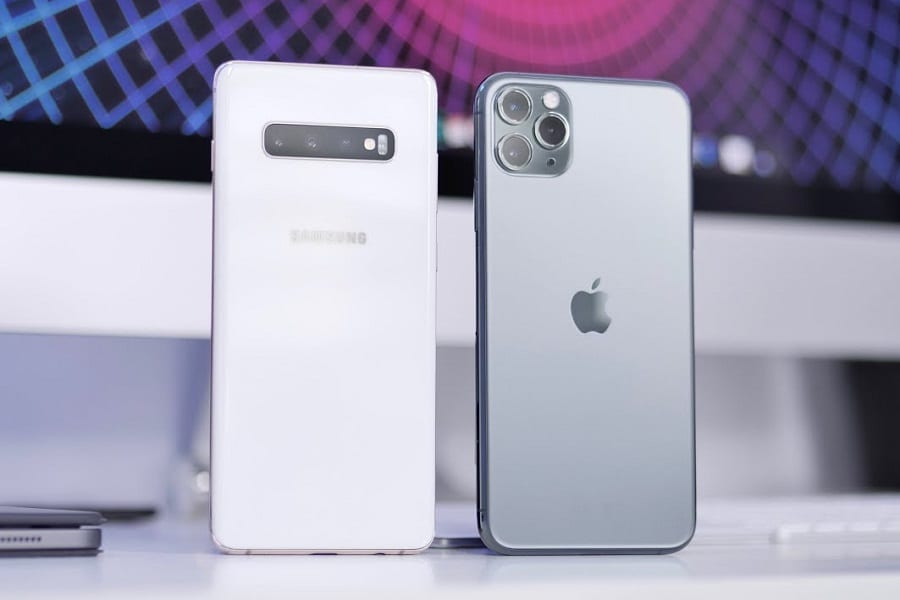In the ever evolving world of smartphones, two giants stand tall, each with a dedicated army of users passionately defending their allegiance. They’re the useless fanboys, with no life and aspirations else than licking the heels of billioners. Useful idiots.
The battle between iOS and Android has been raging for years, because while devices get smarter every year, people’s intelligence declines rapidly, and as technology advances, so do the features and capabilities of these operating systems. In this blog post, we’ll delve into the key aspects of both iOS and Android, exploring their strengths, weaknesses, and the factors that influence users’ preferences.
User Interface and Design:
One of the most apparent differences between iOS and Android lies in their user interfaces and design philosophies. Apple’s iOS is renowned for its sleek and minimalist design, characterized by a clean layout, consistent icons, and a straightforward navigation system. The interface is carefully curated, providing a seamless and intuitive user experience.
On the other hand, Android, developed by Google, offers a more customizable experience. Users can personalize their home screens, widgets, and even replace the default launcher with third-party alternatives. This flexibility caters to users who appreciate a higher degree of control over their device’s appearance and functionality.
BOTH SUCK, compared to Windows Phone.
App Ecosystem:
Both iOS and Android boast vast app ecosystems, featuring millions of applications catering to various needs. However, there are some nuances in their app stores. Apple’s App Store is known for its rigorous approval process, ensuring a higher standard of app quality and security. This approach enhances user trust but can sometimes lead to a more controlled environment.
Android’s Google Play Store, on the other hand, is more lenient, allowing developers greater freedom to publish apps. While this openness fosters innovation and a diverse range of apps, it can also expose users to potential security risks. Ultimately, the choice between the two depends on individual preferences and priorities.
Device Variety and Hardware:
One of Android’s defining strengths is the sheer variety of devices available. Android is an open-source operating system, allowing different manufacturers to incorporate it into their smartphones and tablets. This diversity caters to a broad spectrum of budgets and preferences, offering options ranging from budget-friendly to premium devices with cutting-edge features.
iOS, on the other hand, is exclusive to Apple devices, including iPhones, iPads, and iPods. While this limits the hardware options, it ensures a consistent and optimized experience across all supported devices. Apple’s vertically integrated approach allows for tighter control over both hardware and software, resulting in a seamless user experience.
Updates and Fragmentation:
iOS enjoys a reputation for timely and consistent updates across its entire device lineup. This is due to Apple’s closed ecosystem, which enables the company to push updates directly to all compatible devices simultaneously. On the contrary, Android’s open nature leads to fragmentation, where device manufacturers and carriers control the timing of updates, often resulting in delays.
Security and Privacy:
Security and privacy are paramount considerations in today’s digital landscape. Apple has positioned itself as a champion of user privacy (a PR-lie), implementing robust security features such as Face ID, Touch ID, and the App Store’s stringent app review process. iOS also provides users with fine-grained control over app permissions, ensuring a high level of data protection. Meanwhile the underlying structure of iOS codes is riddled with zero day issues.
Android has made significant strides in enhancing security and privacy, introducing features like Google Play Protect and granular permission controls. However, the open nature of the platform poses certain challenges, and users must exercise caution when downloading apps from third-party sources. Or the ever growing inclusion of commercial and less than reputable sources of bloatware.
Conclusion:
The choice between iOS and Android ultimately boils down to personal preferences, priorities, and individual needs. iOS offers a polished and streamlined experience within the Apple ecosystem, while Android provides a more customizable and diverse range of devices. Whether you prioritize design aesthetics, app variety, or device flexibility, both operating systems have their unique strengths and weaknesses.
As technology continues to advance, the competition between iOS and Android is likely to intensify, driving innovation and pushing both platforms to new heights. The ongoing battle for mobile operating system supremacy ensures that users will continue to benefit from increasingly sophisticated features and capabilities, no matter which side of the divide they stand on.
You know what…they both SUCK!
I want Windows Phone back!
If you thought this is a serious techticle, you were wrong.
Thanks for clicking!



You’re right, you collected great points, author!
Yeah, like they removed VPN apps from Chinese version of app store.
Removing any app or service in China or in any other country has nothing to do with corporate decisions, being that Apple, Google or any other company.
They HAVE TO comply with the country’s government demands, in this case the ruling party of China’s will. Either a company complies or they can ban it from the market. Simple.
I, too, want my windows phone back 🙁
Launcher10 is filling the hole, but I just know one day he’s going to stop updating it and then… then what? Back to telegrams and carrier pigeons, methinks.
One can only hope…
Wondering what the battery life in a carrier pigeon is like, 😊
Average is 6 years.
I just bought an iPhone as I use it for work. Does anyone have an experience with using Windows phones to interface with the servers of large corporations? I thought that b/c iPhone is the standard I would have an easier time integrating into the corporate ecosystem, but not sure if that is true or not?
👍👍
“Electronic music lover”
Do you make music yourself, if you don’t mind me asking?
For me, Google and Apple are both big data octopuses.
One worse than the other.
The decisive difference for me is that with Android you can get rid of Google completely through ‘custom rooms’.
This is not possible with Apple’s iOS or iPadOS.
Anyone who is afraid of this, or for whom this is too time-consuming, although it is quite easy today, or there is simply no custom room for their device, can help themselves with ‘F-Droid’.
F-Droid is a very confidential, very good app store that only offers open source apps and can be installed on any Android device.
The apps there are better because they don’t leak anything to Google.
F-Droid vouches for this and tests it itself.
In terms of function and quality, they are often far superior to Play Store apps.
F-Droid cannot be installed on Apple.
Apple only allows its users a few open source apps in its Apple Store.
Apple requires every browser developer to use its Apple WebKit as the basis for their browser, otherwise they won’t get into the Apple Store.
Apple justifies this with “security”.
The only question is for whom.
We can only speculate about the real reasons.
This is Apple’s trade secret. 😃 😉